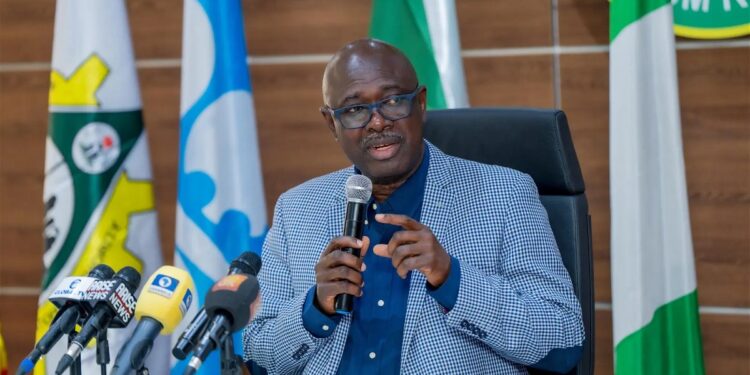Business
FG Announces South Korean Investment for Four Nigerian Refineries

The Federal Government reveals that South Korean investors are gearing up to build four refineries in Nigeria, aiming to enhance local refining and reduce fuel imports.
The Federal Government announced on Tuesday that a group of investors from South Korea has finalized plans to construct four refineries, each with a capacity of 100,000 barrels, at different sites in Nigeria.
At the inaugural summit organized by the Crude Oil Refineries Owners Association of Nigeria in Lagos, Heineken Lokpobiri, the Minister of State for Petroleum Resources (Oil), made this statement.
He stated that the Federal Government is promoting refinery construction by creating an open environment for investors.
Lokpobiri mentioned that permission was recently given to invite the consortium, although he did not reveal its name.
We support investors in constructing smaller refineries by fostering an open and welcoming environment. Recently, approval was given for a consortium of South Korean investors to come to Nigeria with the aim of establishing four 100,000-barrel-per-day model refineries at different sites across the country.
He explained that they have embraced the public-private partnership model to encourage investment in the midstream and downstream sectors of the oil and gas industry, ultimately resulting in the development of additional modular and large-scale refineries.
The oil minister stated that this approach will be effective since the Federal Government is welcoming equity investments in modular and other emerging refineries as a measure to ensure energy security.
The Nigerian Upstream Petroleum Regulatory Commission has created and released guidelines for the domestic crude supply obligation to promote transparency in the oil industry and guarantee access to feedstock for local refineries.
READ ALSO:NNPC to transfer Warri, Kaduna refineries to private firms
He explained, “Moreover, we focus on collaborating with stakeholders to effectively implement the recommendations of the Modular Refinery Committee. This includes granting special concessions to local refinery owners to ensure they have a guaranteed supply of feedstock.”
He continued by saying, “We will guarantee full deregulation of the downstream sector and establish a necessary framework to mitigate its impact on the poor masses.”
The ministry has made it simpler to access existing tax and other exemptions for importing refinery equipment. This is part of our strategy to achieve self-sufficiency in petroleum production within Nigeria and establish the country as Africa’s hub for petroleum refining.
Lokpobiri mentioned that although the PIA established both the petroleum ministry and the National Gas Infrastructure Fund, which is financed by domestic sales of petroleum products, there was an intention within the ministry to allocate a portion of this fund for supporting infrastructure development in refineries, similar to what is done in the gas value chain.
We will begin reviewing the PIA to facilitate this process. In the meantime, CORAN should lead the campaign efforts. We are focusing on establishing partnerships with international institutions through the Petroleum Technology Development Fund and Nigerian Content Development and Monitoring Board. These collaborations aim at knowledge transfer for skills development in refinery operations and fostering investment in research and development to drive technological progress and innovation within the refining industry.
“In the near future, we plan to establish an apprenticeship program in partnership with existing refineries to cultivate expertise in our refinery operations,” he revealed.
To combat crude oil theft and illegal refining, he mentioned that the ministry has established an international emergency committee focused on developing domestic solutions for in-country refining.
